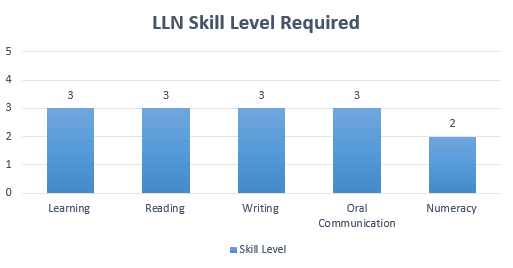In every Australian state there are laws that govern the serving of alcohol and what is required to refuse alcohol to an intoxicated person. They are designed to minimise the potential harm alcohol can cause, and ensure all patrons have a safe and enjoyable experience, wherever they may be.
As an employee who sells alcohol to customers, it is your responsibility to ensure you abide by your state’s Responsible Service of Alcohol (RSA) legislation. If you don’t, and are found to have breached RSA laws, you can be fined along with the licensed premises you work for. While each state is in control of its own RSA laws, having a duty of care by taking all reasonable steps to provide a safe environment for patrons and staff is the general theme. This means not allowing drunk or disorderly people into licensed premises, not serving anyone underage, and to refuse serving alcohol to people who are intoxicated.

What strategies can I use to refuse serving alcohol to someone?
For many people, the thought of refusing service of alcohol to a patron can cause a level of anxiety and stress. Patrons can become agitated if they are refused service, and in some instances, the situation has the potential to escalate into aggression and violence. However there are ways to approach the situation that will ensure you are covered legally, and reduce the chances of the situation becoming dangerous.
1. Early intervention – Be aware of your surroundings, and take note of people who are heading towards intoxication. Subtly and tactfully inform them they will be refused service if their behaviour deteriorates, and they could be asked to leave.
2. Seek assistance – Before approaching any intoxicated patron, seek approval and assistance from your manager and security staff. This will ensure you are covered should anything go wrong, and if it’s your first time in a situation like this, provide you with guidance so you learn how to deal with them in the future.
3. Be patient and polite – Confidently but politely inform the patron that you can no longer serve them alcohol. Don’t call them names, stay calm and don’t raise your voice. To reinforce the point, you should:
- Clearly explain the reason for the refusal
- Use props such as information posters to back up your refusal
- Explain the law and what it could mean to you if you continue to serve them
4. Don’t delay – If you decide they’ve had enough alcohol, don’t delay your decision to refuse serving them alcohol. Don’t let them finish their drink hoping they will then leave of their own accord, or giving them one last drink. This is not compliant with RSA legislation and you could be held legally accountable.
5. Offer them a drink and an olive branch – Ask them if they would like a non-alcoholic to drink, and reassure them that you will be happy to serve them again in the future (unless they are a repeat offender).
6. Offer assistance – Ask them if they’d like you to call a friend or taxi to get them home. The friendlier you are, and the more supportive you are, the less likely they are to get angry and become aggressive.
7. Ensure the patron leaves within a reasonable period of time – Once a patron becomes intoxicated they must leave the premises and not be allowed back in. While they may have accepted your offer of a non-alcoholic drink, they will still need to leave. It’s your responsibility to ensure they leave safely and do not loiter outside.
8. Keep a record of the incident – Once the patron has been safely removed from the premises, record the details of what happened in writing. This should include the reasons for refusal of service, what was said by everyone involved, what actions were taken, and if there was any aggressive behaviour. Once you’ve written down the details, ensure management witnesses and signs off on it.
If you refuse serving of alcohol, all parties have rights to be respected
As long as you’re confident in your reasons for refusing service of alcohol, and those reasons are not discriminatory in any way, you have the right to continue with the course of action you’ve decided to take. However, you must be aware that the patron also has rights, and can take the matter to the state’s anti-discrimination commission if they think they’ve been treated unfairly because of their sex, religion, race, or any other form of discrimination.
When you start working at a licensed premises, seek out the venue’s refusal to serve alcohol policy and study it. Knowing how to manage these situations before they occur will ensure you have the best chance of securing a positive outcome for everyone involved. Complete your RSA course (SITHFAB201 – Provide Responsible Service of Alcohol) online now and obtain your competency card without delay!



